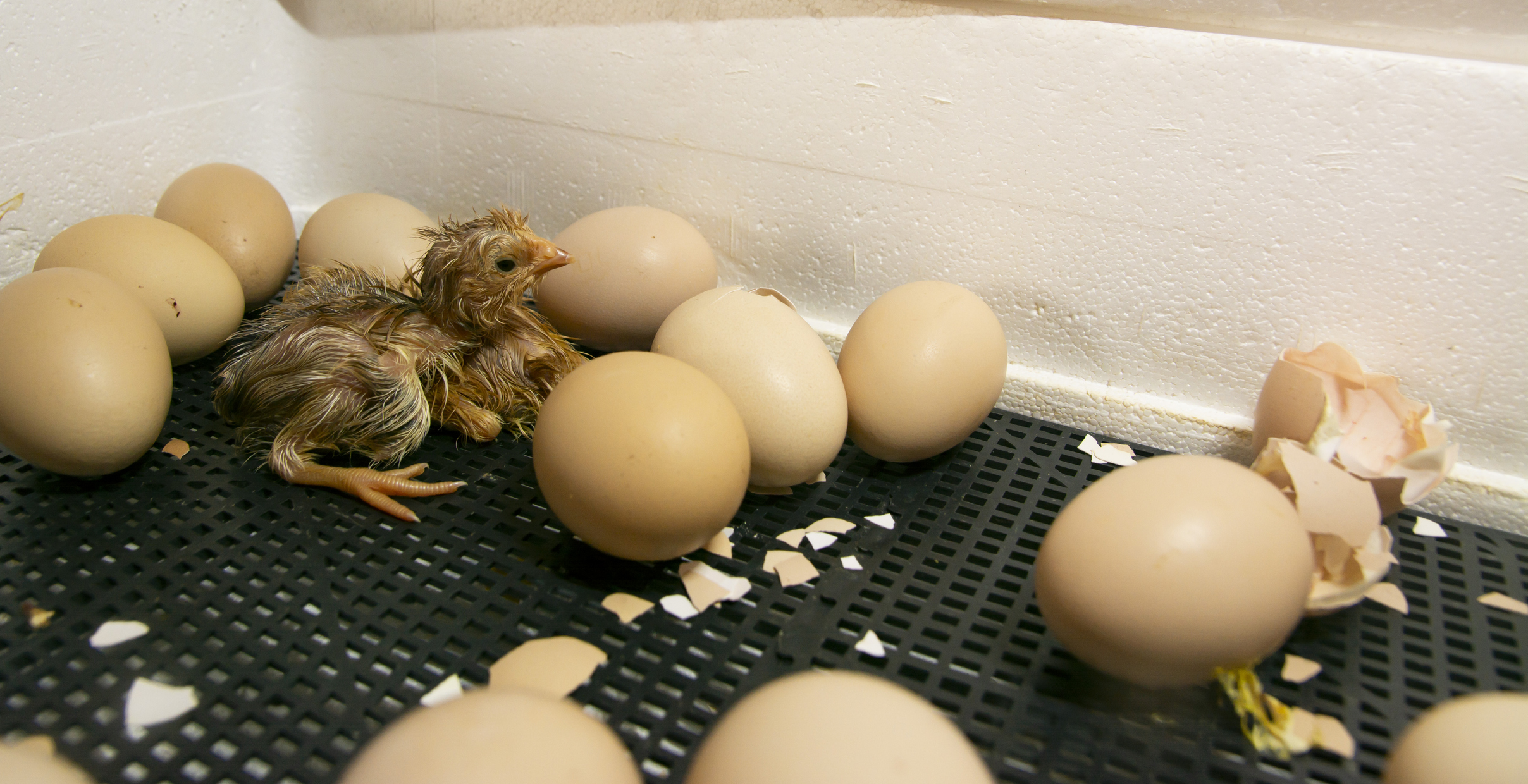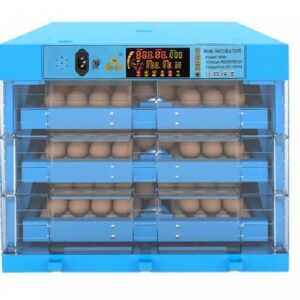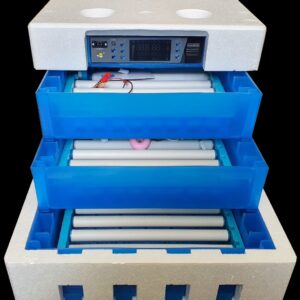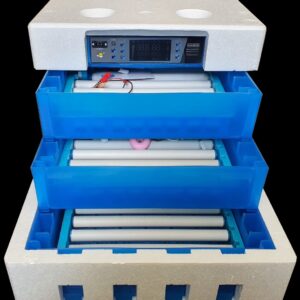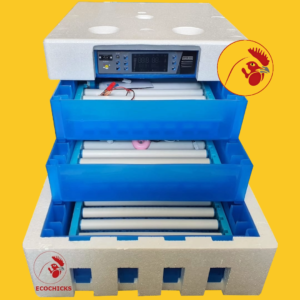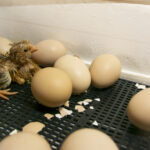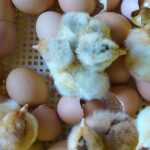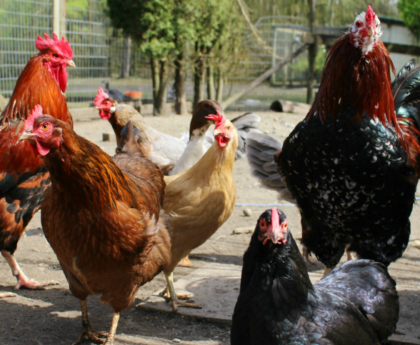Incubating fertile eggs is a crucial step in the process of hatching healthy chicks. To ensure successful incubation, it is important to select eggs that possess ideal characteristics. These characteristics play a vital role in determining the hatching rate and the overall health of the chicks once they hatch. In this article, we will explore the key characteristics of fertile eggs that make them ideal for incubation and discuss the key factors for optimal incubation.
Ideal Characteristics of Fertile Eggs for Incubation
- Freshness: Fresh eggs have a greater likelihood of successful hatching. It is recommended to collect eggs within a week of laying for incubation. As time passes, eggs lose moisture, which decreases their hatchability. Therefore, it is crucial to select eggs that are as fresh as possible.
- Shell Quality: The shell plays a crucial role in protecting the growing embryo inside the egg. Ideal fertile eggs should have a clean, uncracked, and smooth shell. Eggs with cracks or abnormalities in the shell may allow harmful bacteria to enter, leading to unsuccessful incubation or the development of weak chicks.
- Shape and Size: Uniformity in egg shape and size is important for optimal incubation. Eggs that are excessively large or too small may indicate abnormalities in the reproductive system of the hen or the presence of genetic disorders. It is advisable to select eggs that are of medium size, with a symmetrical and oval shape.
Key Factors for Optimal Incubation of Fertile Eggs
- Temperature: Maintaining the correct temperature during incubation is crucial for the development of the embryo. It is recommended to incubate eggs at a temperature of around 99.5°F (37.5°C). Fluctuations in temperature can negatively impact embryo development, resulting in reduced hatchability or the development of abnormal chicks.
- Humidity: Proper humidity levels are essential for the successful development of the embryo and the hatching of healthy chicks. The ideal humidity level for incubating fertile eggs is around 50-55% during the first 18 days, and then increased to 65-70% during the final days before hatching. Insufficient humidity can cause the embryo to become dehydrated, leading to poor hatching rates.
- Turning: Regularly turning the eggs during incubation is crucial to ensure the proper development of the embryo. Turning the eggs at least three to five times a day helps prevent the embryo from sticking to the inner shell membrane and promotes proper circulation of nutrients and oxygen. This practice also helps prevent deformities and enhances the overall health and viability of the chicks.
Selecting fertile eggs with ideal characteristics and providing optimal incubation conditions is essential for successful hatching. Freshness, shell quality, and shape are key characteristics to consider when choosing eggs for incubation. Additionally, maintaining the correct temperature, humidity levels, and regular turning of the eggs are crucial factors that contribute to the healthy development of the embryo and the hatching of strong, vibrant chicks. By paying attention to these characteristics and factors, breeders can increase their chances of a successful hatch and the growth of a thriving flock.
-
 2112 Eggs Incubator, Poultry Hatcher Machine,Dual Control of Humidity and Temperature-Dual Use of Coal and Electricity,Automatic Egg Turning Microcomputer Control Panel.KSh120,000.00
2112 Eggs Incubator, Poultry Hatcher Machine,Dual Control of Humidity and Temperature-Dual Use of Coal and Electricity,Automatic Egg Turning Microcomputer Control Panel.KSh120,000.00 -
 Automatic 192 Eggs Incubator With Built-in Egg And Smart Temperature Humidity Controller LED Candler For Hatch Chicken Duck Goose BirdKSh29,000.00
Automatic 192 Eggs Incubator With Built-in Egg And Smart Temperature Humidity Controller LED Candler For Hatch Chicken Duck Goose BirdKSh29,000.00 -
 192 Eggs Incubator With Automatic For Hatching Eggs Chicken Temperature And Humidity Control With Digital Display LED CandlerKSh29,000.00
192 Eggs Incubator With Automatic For Hatching Eggs Chicken Temperature And Humidity Control With Digital Display LED CandlerKSh29,000.00 -
 192 Eggs Automatic Egg Incubator With Turning And Humidity Control LED Candler For Hatching Ducks Goose Quail Chicken HouseholdKSh29,000.00
192 Eggs Automatic Egg Incubator With Turning And Humidity Control LED Candler For Hatching Ducks Goose Quail Chicken HouseholdKSh29,000.00 -
 192 Eggs Incubator Automatic Turning with Egg Trays, Temperature Humidity Control Poultry Hatcher for Farm Chickens Ducks Goose BirdsKSh29,000.00
192 Eggs Incubator Automatic Turning with Egg Trays, Temperature Humidity Control Poultry Hatcher for Farm Chickens Ducks Goose BirdsKSh29,000.00 -
 192 Eggs Automatic Incubators Intelligent Poultry Hatching Machine with Temperature and Humidity ControlKSh29,000.00
192 Eggs Automatic Incubators Intelligent Poultry Hatching Machine with Temperature and Humidity ControlKSh29,000.00 -
 192 Eggs Automatic Egg Incubator, LED High-Efficiency Automatic Egg Turning & Temperature Control, Automatic Ventilation Egg Incubators for Hatching Chicken Duck Goose BirdsKSh29,000.00
192 Eggs Automatic Egg Incubator, LED High-Efficiency Automatic Egg Turning & Temperature Control, Automatic Ventilation Egg Incubators for Hatching Chicken Duck Goose BirdsKSh29,000.00 -
 2112 Eggs Incubator Fully Automatic Poultry Hatcher Machine with Temperature Control, for Chicken Duck Dove QuailKSh130,000.00
2112 Eggs Incubator Fully Automatic Poultry Hatcher Machine with Temperature Control, for Chicken Duck Dove QuailKSh130,000.00 -
 192 Eggs Incubator Intelligent Constant Temperature Brooder with Automatic Turning and LED Candling Lamp for Farm HomeKSh30,000.00
192 Eggs Incubator Intelligent Constant Temperature Brooder with Automatic Turning and LED Candling Lamp for Farm HomeKSh30,000.00

